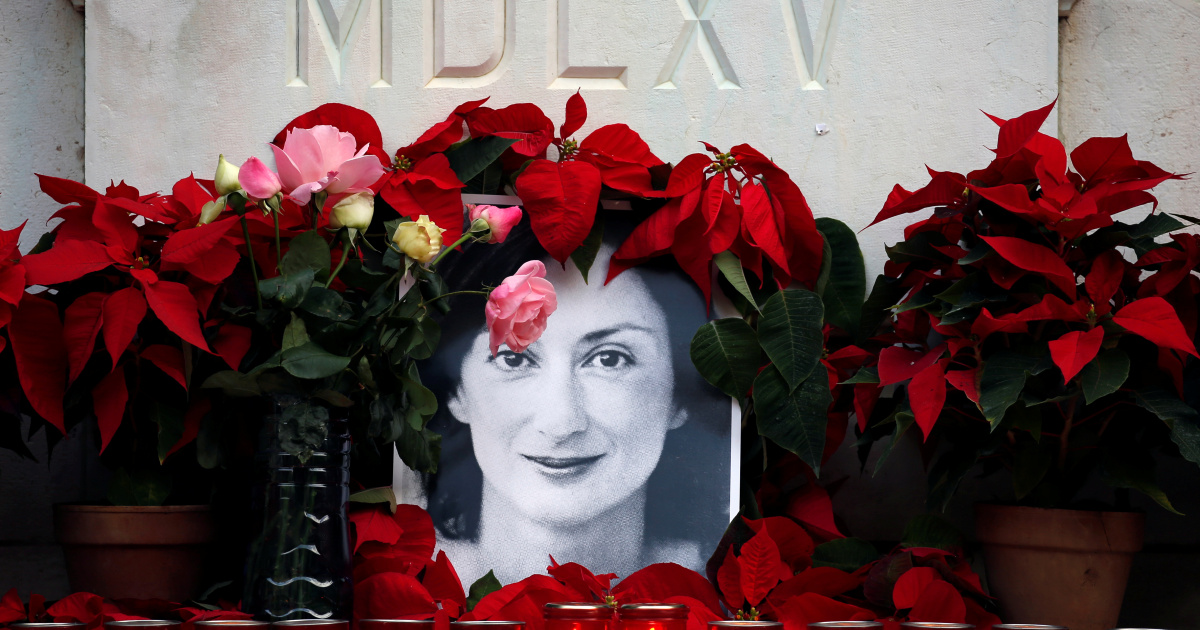Maltese government failed to recognise risks to journalist’s life and take reasonable steps to avoid them, inquiry concludes.
An independent inquiry into the car bomb murder of Maltese investigative journalist Daphne Caruana Galizia has found the state responsible for her killing because it had created a “culture of impunity”.
The inquiry’s 437-page report, published on Thursday, said officials had failed to adequately protect Caruana Galizia from threats to her life prior to her death in October 2017.
Caruana Galizia was killed in a huge explosion as she drove out of her home.
Prosecutors believe top businessman Yorgen Fenech, who had close ties with senior government officials, masterminded the murder.
Fenech, who is awaiting trial for association to murder, denies all responsibility.
Three men suspected of setting off the bomb were arrested in December 2017. One has since pleaded guilty as part of a plea bargain and is serving a 15-year jail term. The other two are awaiting trial.
The self-confessed middleman has turned state witness and was granted a pardon.
‘Collapse in the rule of law’
The inquiry, conducted by one serving judge and two retired judges, found that a culture of impunity was created by the highest echelons of power within the government of the time.
“The tentacles of impunity then spread to other regulatory bodies and the police, leading to a collapse in the rule of law,” said the panel’s report, which was published by Prime Minister Robert Abela.
It said the state had failed to take reasonable steps to avoid real and immediate risks to Caruana Galizia’s life.
It was clear, the inquiry board said, that the assassination was either intrinsically or directly linked to Caruana Galizia’s investigative work.
Former Prime Minister Joseph Muscat resigned in January 2020 following Fenech’s arrest. He was never accused of any wrongdoing.
Media later also revealed close links between Fenech, ministers, and senior police officers.
The judges called for immediate action to rein in and regulate the links between politicians and big business.
Abela said in a tweet that the report required “mature” and objective analysis. “Lessons must be drawn and the reforms must continue with greater resolve,” he said, without elaborating.
The inquiry heard evidence from the police, government officials, the Caruana Galizia family and journalists, among others.
